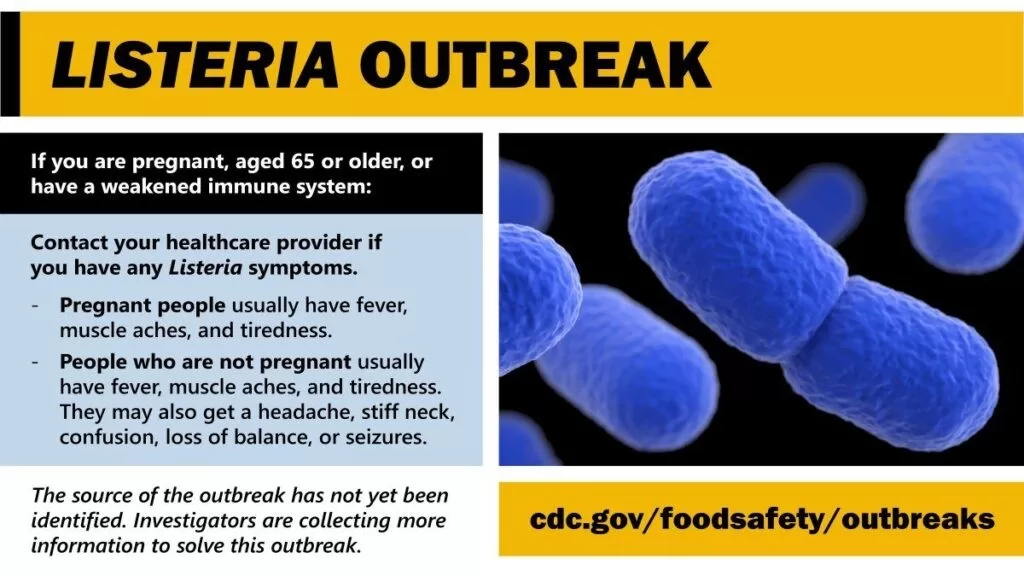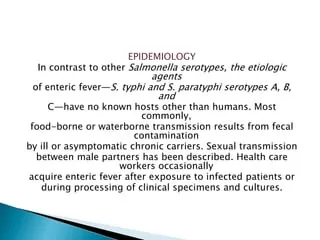The recent Listeria outbreak has raised alarm across the nation, as the CDC issued a dire warning regarding the safety of ready-to-eat meat products linked to this deadly bacteria. Eleven cases have emerged in four states, including a tragic incident involving a pregnant woman in California who lost her twins to the infection. Hospitalizations have been noted among several of those infected, emphasizing the seriousness of Listeria infection symptoms, which can lead to severe complications, particularly in vulnerable populations. The CDC has urged the public to stay informed through food safety news, especially as it pertains to the Yu Shang Food recall, which affects a substantial amount of meat and poultry products. With health officials closely monitoring this outbreak, consumers are advised to check their fridges and discard any recalled items to safeguard their health.
Current concerns surrounding a significant foodborne illness event have emerged, primarily associated with the consumption of pre-packaged meats from a specific manufacturer. This troubling situation, resulting in confirmed cases of infection across several states, highlights the importance of public awareness regarding food safety and the potential risks of consuming contaminated products. With signs of infection including severe gastroenteritis, the need for vigilance in the face of this recent food safety hazard has never been more crucial. As investigations continue, consumers are being informed about the necessary recalls and the actions they must take to prevent further spread. Keeping abreast of updates related to this outbreak will be essential for protecting public health.
Understanding the CDC Listeria Warning and Its Implications
The CDC’s recent announcement regarding a Listeria outbreak serves as a critical reminder of the importance of food safety in our everyday lives. With 11 confirmed cases and one tragic death, this outbreak underscores the potential seriousness of Listeria monocytogenes, particularly in vulnerable populations such as pregnant women and the elderly. During this period of heightened concern, the CDC strongly advises consumers to stay informed about food recalls and to adhere closely to safety guidelines to mitigate the risk of infection.
The Listeria outbreak linked to ready-to-eat meat and poultry emphasizes the need for thorough food handling and preparation practices. It’s essential for consumers to be aware of the symptoms of Listeria infection, which include fever, muscle aches, and gastrointestinal distress. Understanding these warning signs can lead to timely medical intervention. By proactively engaging with food safety news and staying updated on guidance from health authorities like the CDC, consumers can protect themselves and their families from potential risks associated with contaminated food products.
The Link Between Ready-to-Eat Meat and Listeria Infection Symptoms
Ready-to-eat meat products are often perceived as convenient meal options; however, they can also be a source of Listeria infection if not properly handled or if they originate from a contaminated source. The recent Yu Shang Food recall highlights the danger that these products can pose, leading to severe health consequences, particularly for those with weakened immune systems. Symptoms of Listeria infection may develop within a few weeks of coming into contact with contaminated food, and for some, the result could be hospitalization due to complications.
Awareness of Listeria infection symptoms is vital for everyone, especially for pregnant women, who are at increased risk for severe outcomes. Common symptoms include fever, headache, and gastrointestinal issues. In severe cases, especially with pregnant women, Listeria can lead to miscarriage, stillbirth, or health complications for newborns, emphasizing the critical need for vigilance when consuming ready-to-eat meat products and adhering to health advisories.
The Recent Yu Shang Food Recall: A Critical Look at Food Safety
The recall of Yu Shang Food’s ready-to-eat meat and poultry products serves as a crucial wake-up call regarding the need for stringent food safety protocols. With over 72,000 pounds of potentially contaminated products recalled, consumers need to understand both the implications of this large-scale recall and how it affects their purchasing choices. The CDC’s recommendation to discard or return any recalled products is aimed at preventing further infections and protecting public health.
In response to the recall and the ongoing Listeria outbreak, consumers are urged to remain vigilant and informed. Monitoring food safety news from reliable sources such as the CDC can provide essential updates on recalls and safety guidelines. Furthermore, the situation over the past week underscores the importance of awareness in mitigating risks associated with ready-to-eat meats, ensuring that consumers take proactive measures to safeguard their health and well-being.
Demographics and Impacts of the Listeria Outbreak
The demographic analysis of the Listeria outbreak reveals troubling patterns that necessitate further examination. Most cases have been reported among individuals aged 64 and older, predominantly within the Asian community. The distinct demographic trend raises questions about specific vulnerabilities and access to healthcare. It highlights the importance of targeted messaging regarding food safety and health resources tailored to different community needs.
Moreover, the information gathered by the CDC points to a mix of shopping behaviors that may have contributed to the outbreak. With many affected individuals purchasing Yu Shang Food products from various marketplaces, this complicates efforts to trace the source of the outbreak. Understanding these demographics not only informs public health responses but also highlights the intersection of culture, shopping behaviors, and health risks, underscoring the need for ongoing education in food safety practices.
Symptoms of Listeria Infection: What to Watch For
Recognizing the symptoms of Listeria infection is crucial, especially in light of the current outbreak linked to Yu Shang Food products. Common symptoms include flu-like manifestations such as fever, muscle aches, and diarrhea. The onset of these symptoms can vary, making it imperative for consumers to remain vigilant for up to 70 days after exposure to contaminated food. Prompt recognition and response can significantly improve outcomes, particularly for at-risk populations.
For individuals at greater risk, including pregnant women, newborns, the elderly, and those with compromised immune systems, the symptoms can escalate to more severe conditions, including meningitis and septicemia. Increased awareness and understanding of these symptoms can lead to quicker medical treatment, significantly reducing the risk of severe complications. Thus, education on Listeria symptoms is an essential component of public health strategies.
Ready-to-Eat Meat and Vulnerable Populations
The recent Listeria outbreak emphasizes the heightened risks faced by vulnerable populations when consuming ready-to-eat meat products. Among those affected, pregnant women have been particularly impacted, with devastating consequences highlighted by the death of two infants in California. This situation brings to light the ongoing challenges surrounding food safety and the need for robust preventive measures to protect those who are most at risk.
Understanding the vulnerabilities in these populations is critical in combating foodborne diseases. Health organizations must prioritize food safety guidelines that specifically address the needs of at-risk groups. Awareness campaigns tailored to educate this demographic about safe food practices, especially in relation to ready-to-eat meat, are necessary for reducing infection rates and improving overall public health.
The Importance of Monitoring Food Safety News
Staying informed through reliable food safety news sources is essential, especially amidst potential health crises like the current Listeria outbreak associated with Yu Shang Food. Being proactive enables consumers to respond swiftly to recalls and emerging information relevant to their health. News updates from credible organizations such as the CDC provide critical insights into outbreaks, prevention techniques, and other important information.
Consumers should actively engage with food safety alerts and recall announcements, using them to inform their purchasing decisions. In an age where information spreads quickly, having access to timely updates can help individuals and families make safer food choices, ultimately safeguarding health and well-being. The ongoing Listeria outbreak serves as a reminder of the importance of vigilance and education in food safety.
Preventing Listeria Infections in Your Home
Preventing Listeria infections begins in the home through diligent food safety practices. For instance, ready-to-eat meats should be stored at appropriate temperatures and consumed promptly to reduce the risk of contamination. Consumers are urged to adhere to strict hygiene practices, such as washing hands, surfaces, and utensils before preparing meals and when handling foods that may pose a risk.
Furthermore, understanding the implications of the current Listeria outbreak can reinforce the importance of checking product labels and being aware of food recalls. Disposing of recalled items and maintaining a clean kitchen environment play pivotal roles in preventing infection. By prioritizing food safety at home, individuals can participate actively in reducing the likelihood of Listeria infections.
Community Response and Health Education Efforts
In light of the recent Listeria outbreak, community health organizations are mobilizing to enhance awareness and education around food safety. Local initiatives aimed at educating vulnerable populations, particularly those affected by the outbreak, are essential in preventing further cases. These efforts may include workshops, informational flyers, and distribution of resources that outline the symptoms of Listeria infection and the importance of food recalls.
Moreover, engaging community members in discussions about food safety promotes collective responsibility. By fostering an environment where individuals are encouraged to share information regarding safe food practices, communities can better withstand health challenges posed by foodborne illnesses. The collaboration between local health departments, community leaders, and residents can pave the way for stronger health education initiatives.
Frequently Asked Questions
What is the current status of the CDC Listeria outbreak linked to ready-to-eat meat?
As of November 25, 2024, the CDC reports a deadly Listeria outbreak linked to ready-to-eat meat and poultry from Yu Shang Food. There have been 11 confirmed cases and 1 death across four states, primarily in California. The outbreak has resulted in 9 hospitalizations, particularly affecting older adults and pregnant women.
What symptoms are associated with Listeria infection during the recent outbreak?
Symptoms of Listeria infection, particularly during the recent outbreak, may include fever, muscle aches, nausea, and diarrhea. In severe cases, it can lead to meningitis or septicemia. Pregnant women should watch for flu-like symptoms, as Listeria can cause serious complications for them and their newborns.
Which products are involved in the Yu Shang Food recall linked to the Listeria outbreak?
The Yu Shang Food recall includes all ready-to-eat meat and poultry products produced before October 28, 2024. Consumers are advised to discard these products or return them to the store. Approximately 72,240 pounds of these recalled items are linked to the current Listeria outbreak.
How can consumers ensure food safety after the CDC Listeria warning?
To ensure food safety post-CDC Listeria warning, consumers should check for recalls on ready-to-eat meat and poultry products, verify product labels from places like Yu Shang Food, and follow proper food handling and cooking practices. Always discard recalled items and consult updates from the CDC.
What actions should be taken if I have symptoms related to the Listeria outbreak?
If you experience symptoms of Listeria infection, especially following consumption of recalled Yu Shang Food products, seek medical attention immediately. Inform your healthcare provider about your symptoms and any relevant food item consumption to receive appropriate care.
Where can I find the latest food safety news regarding the Listeria outbreak?
For the latest food safety news on the Listeria outbreak, regularly visit the CDC’s official website, where they provide updates on outbreaks, recalls, and guidelines for consumers. This site is a reliable resource for current Listeria warnings and food safety tips.
Who is most affected by the recent Listeria outbreak?
The recent Listeria outbreak has primarily affected older adults, with an average age of 64, and a notable incidence in pregnant women, as seen in California. All affected individuals reported purchasing food from sources that stocked Yu Shang Food products.
| Key Points | Details |
|---|---|
| CDC Announcement | A Listeria outbreak linked to ready-to-eat meat and poultry products has been announced. |
| Affected Cases | 11 confirmed cases and 1 death across 4 states. |
| Hospitalizations | 9 out of 11 individuals hospitalized. |
| Specific Cases | California reported 7 cases, including a pregnant woman whose twins died. |
| Source of Outbreak | Associated with Yu Shang Food ready-to-eat meat and poultry products. |
| Recall Information | 72,240 pounds of products recalled; consumers advised to discard or return. |
| Demographics | Affected individuals average age is 64, majority are Asian and 55% female. |
Summary
The recent Listeria outbreak highlights a serious public health concern linked to ready-to-eat meat and poultry products. The CDC has confirmed 11 cases and 1 related death, drawing attention to the recalled products from Yu Shang Food. As the investigation continues, consumers are urged to be vigilant about food safety, particularly regarding recalled items. This outbreak underscores the need for awareness and quick public health responses to prevent further illness.
The content provided on this blog (e.g., symptom descriptions, health tips, or general advice) is for informational purposes only and is not a substitute for professional medical advice, diagnosis, or treatment. Always seek the guidance of your physician or other qualified healthcare provider with any questions you may have regarding a medical condition. Never disregard professional medical advice or delay seeking it because of something you have read on this website. If you believe you may have a medical emergency, call your doctor or emergency services immediately. Reliance on any information provided by this blog is solely at your own risk.








